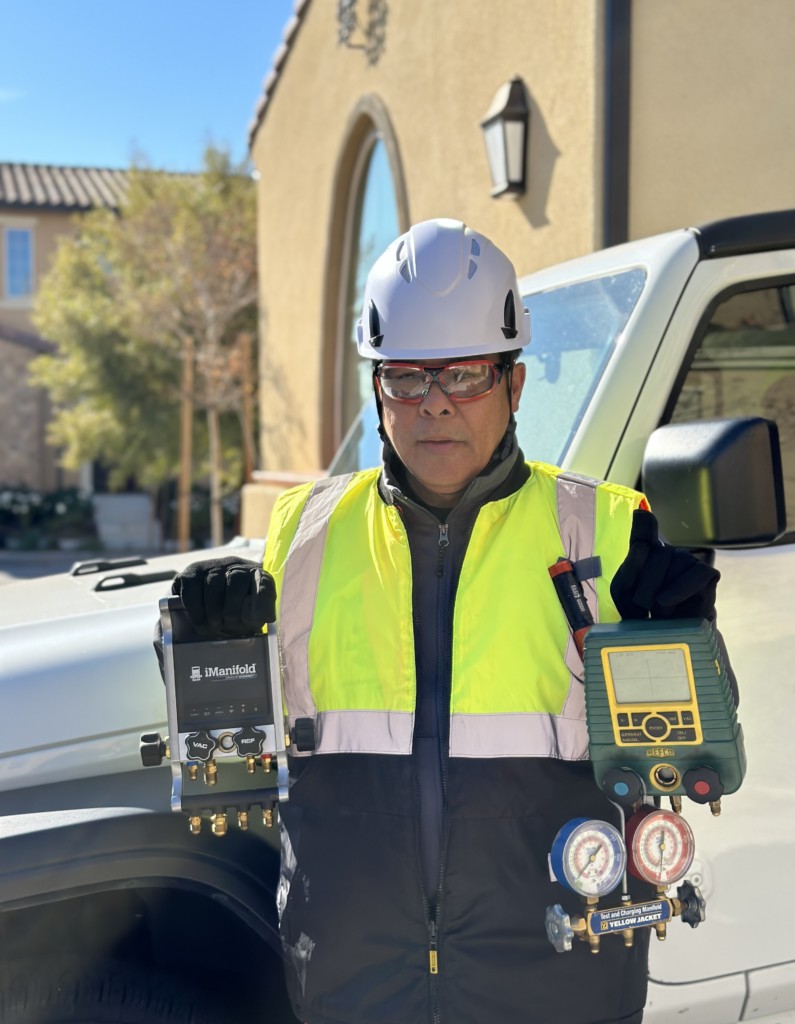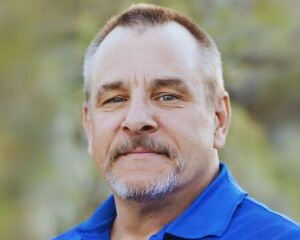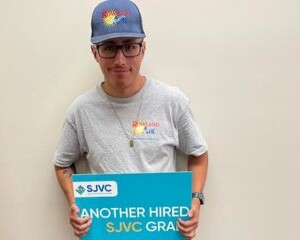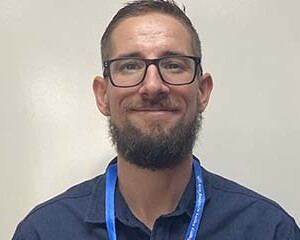Q&A with HVAC-R Instructor at SJVC Lancaster, Anthony Ortega
 Anthony Ortega is an HVAC-R (Heating, Ventilation, Air Conditioning and Refrigeration) instructor at SJVC’s Lancaster campus in California’s Antelope Valley. He not only brings a wealth of knowledge to the position, but a deep-rooted passion as well. With a long list of accomplishments and Master Level certifications, he is an inspiration to anyone interested in following that career path, so we decided to interview him and share some of his thoughts for anyone looking to get started as an HVAC-R technician. Here is what he had to say:
Anthony Ortega is an HVAC-R (Heating, Ventilation, Air Conditioning and Refrigeration) instructor at SJVC’s Lancaster campus in California’s Antelope Valley. He not only brings a wealth of knowledge to the position, but a deep-rooted passion as well. With a long list of accomplishments and Master Level certifications, he is an inspiration to anyone interested in following that career path, so we decided to interview him and share some of his thoughts for anyone looking to get started as an HVAC-R technician. Here is what he had to say:
Can you please tell us a little about yourself?
I have multiple senior/master level HVAC-related certifications such as the thirteen NATE (North American Technician Excellence service/install categories/specialties), a nationally Certified Master HVAC-R Educator, an RSES (Refrigeration Service Engineers Society) CMS-certified (Certified Member Specialist), a qualified/licensed Mechanical HVAC/Electrical/Plumbing (MEP) contractor, etc. In my main job, I assess the conditions HVAC/MEP facilities, equipment and systems covering over 100 large campuses / school districts all over California.
How did you get into a career in HVAC-R?
In my early 20s, I started HVAC in building operations & maintenance and in less than 2 years, I had multiple job offers. I worked in installation, commissioning and service of HVAC systems from small to mostly large sizes or capacities. My interest in HVAC was greatly boosted when I joined a company representing Honeywell HVAC controls and realized that this trade has offered not only good and stable paying jobs, but has a lot of stuff to learn every day, interesting challenges and great opportunities to solve problems for residential and commercial business customers. So it has been a very highly satisfying and dependable job to do. From the start of my HVAC career my skill sets have taken care of me and my family very well. I have always had a reliable job which makes me proud.
Can you please tell us about your position at SJVC?
I teach HVAC-R at SJVC in the evenings. I love the challenges of teaching the first three HVAC-R modules (100, 101 and 102) as these provide the much-needed foundation for theoretical knowledge and basic hands-on skills that most entry level HVAC-R students must have in order to succeed as a competent HVAC-R Technician or Mechanic.
What are some of your responsibilities?
For each HVAC-R module I teach, I review the whole curriculum/syllabus information and prepare detailed lesson plans daily and weekly. I make sure that I have the right classroom management strategies and teaching methods that can be adjusted to be more effective in teaching students. I have regular one-on-one conversations and guidance so that student concerns can be addressed timely and that they are updated on the options or opportunities for them.
What are some of your goals?
My main goal is to turn every student I teach to become a competent or great HVAC-R Technician so as to kick-start their career to a more promising or progressive one in the most effective, efficient and simplified learning manner. While I continue to improve and update my HVAC-R knowledge and teaching skills, my end goal is for each student to receive the maximum benefits in terms of their actual learning outcomes.
What do you like the most about working in education?
What I like most in education is being able to share my wealth of knowledge and real-world experience in the most simplified and/or most effective manner that I can satisfy the course learning objectives for the students. I like that teaching is a never-ending learning process for me as well. The fact that I can give back by definitely changing the lives of my students and their families is a constant bonus every time one of my students graduates.
How do you help prepare students for professional success?
As a minimum, I will make sure that each student will have a solid understanding and acquired skills of what I sometimes call “K.I.S.S.” – Knowledge, Instruments/Tools, Skills and Safety – as these areas are the basic foundation towards developing them into a good HVAC worker. They should learn all the safe, correct and productive use of digital multimeters for troubleshooting and fixing HVAC-R problems.
I use my proven talent in simplifying difficult HVAC-R concepts, hands-on techniques and math formulas so that each student not only understands these more easily and quickly, but appreciates their true usefulness, practical applications and connections to both prior learning and real-world. I always ensure that I am very-well prepared before the class begins so that no time is wasted, and lessons planned are covered thoroughly. I regularly attend national conferences for educators and similar events and do not fail to share what I learned and constantly update my students on latest HVAC-R tools and technologies and other professional development opportunities for them. I provide updated and comprehensive guidance about different industry-recognized HVAC-R certifications. I use my wide network or connections in the HVAC-R industry so that I can regularly organize field trips, guest speakers, etc. Last but not least, I make myself highly reachable or available in case of any questions or concerns by the students.
What advice would you give to students who are interested in the HVAC-R program at SJVC?
Now is truly the best time to invest your time, effort and resources in the field of HVAC-R. It has always been an important trade but much more so in this current economy. Due to length of my experience and continuing education, I wore almost all HVAC-R hats and can pick any job I want. I often tell my students that it is very possible to learn now in just about a year what I have learned in 5-10 years and the harder you work the better. Once you have a strong HVAC-R foundation, leveraging this along with all the latest HVAC-R tools and technologies will be the smartest and most productive thing anyone can do.
What do you enjoy most about working in your industry?
The continuous learning part is what I enjoy the most. Advancements in HVAC-R technologies and growing knowledge have never been this interesting and at this rate. So it’s importance in real-world applications. Considering that HVAC-R also covers electrical, controls/automation, plumbing/piping and energy efficiency skill sets – the productivity outcomes you can get can be huge or unimaginable in terms of overall scale or impact.
What are some of your proudest professional (or personal) accomplishments?
About 10-15 years ago, I was one of the first in California to pass the Senior or Master Level of NATE Certification Specialty. After a year or two, I then obtained the Master Level certifications as Certified Master HVAC-R Educator by ESCO/HVAC Excellence and as CMS by RSES. I continue to obtain more HVAC-R certifications as I enjoy fixing and troubleshooting in the field with the knowledge and skills I have gained. That is the power of leveraging knowledge. Given enough preparation, I think that I reach the point where there is no HVAC-R certification in the world, whatever level, aspect or area/specialty it is, that I cannot challenge or pass. Lass but not the l least, we are very few individuals only in California who have been qualified and licensed in three contractor specialties: HVAC, Electrical and Plumbing. I also have mentored and trained quite a number of HVAC students, technicians and business owners for their successful pursuit and achievement of industry certified HVAC-R certifications like NATE, etc.
Anything else you would like to add?
When you are passionate in HVAC-R like me, you can also be creative to make it more interesting and productive in solving real-world problems. For example, I created my own diagnostic / troubleshooting methodology I called “Fix-by-P.I.C.S.” (Problem, Impact, Cause, Solution) in which I’ve used with good results for solving large HVAC-R problems in a highly structured and effective manner. When I was an HVAC Lead in one multinational company, I created a critical daily HVAC-R Checklist called “P.A.T.H. Checks” – Pressure, Airflow, Temperature and Humidity” that I use in monitoring and operating our HVAC systems that serve our manufacturing “cleanroom.” The outcome was a better tracking and proactive control on my part so that these will operate to peak performance and avoid downtime or emergencies that can result to loss of large sum of money and disastrous operations.
There is truly a great professional development and career ladder in HVAC-R field and almost no limit on how far you can succeed in order to make the lives of you and your family better. YES, you can do it and you can easily be like me and others who have developed the great HVAC-R passion like what I have now, take advantage of all the well- proven benefits that comes with it and enjoy the fun and interesting challenges while earning, learning and helping many others to live more productively, comfortably, safely and healthy. Depending on the amount of hard work, dedication and practice that you are willing to put in, I know you can do it too.
Learn More about the HVAC-R program at SJVC’s Lancaster campus
You might also like
More stories about
Request Information
All fields using an asterik (*) are required.


